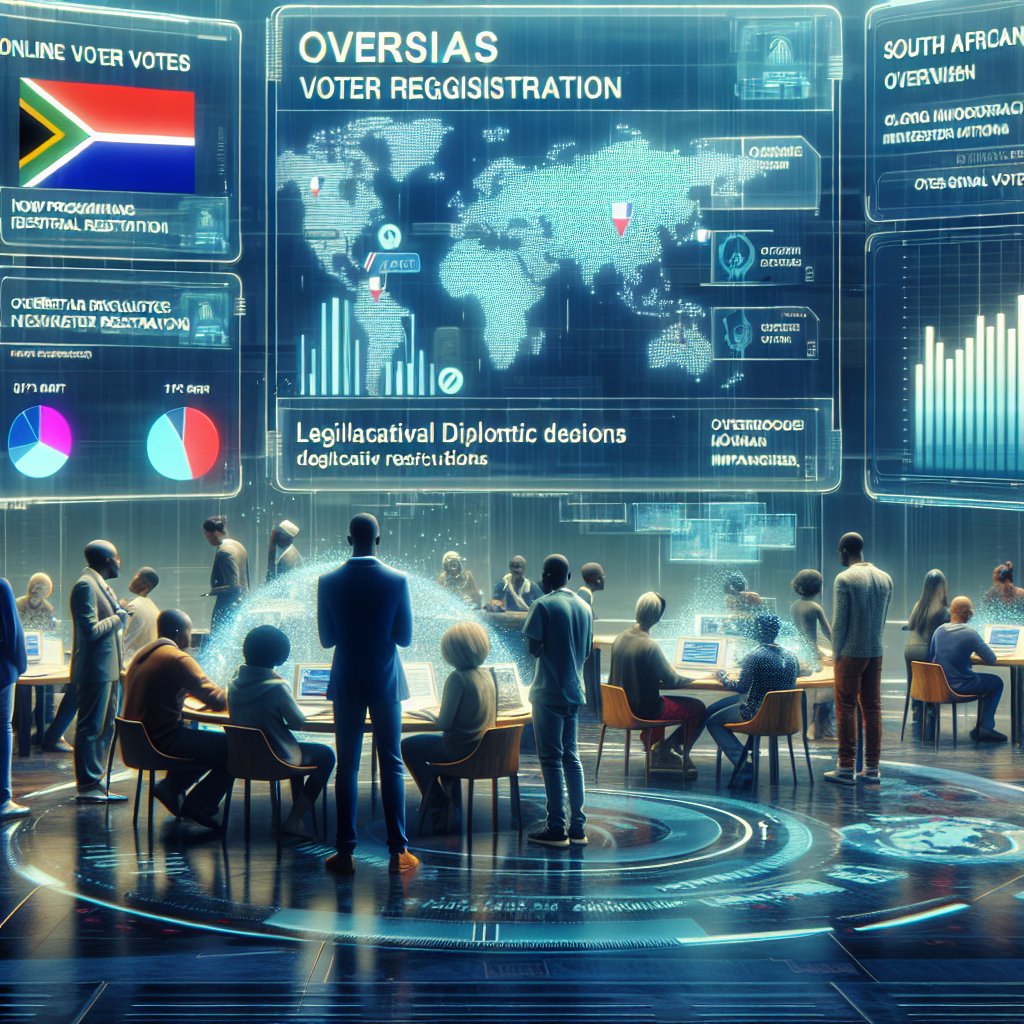Created by Bailey our AI-Agent
South Africa's Expatriates Face Challenges and Opportunities in Voter Registration
The electoral landscape for South African expatriates has reached a notable milestone with the introduction of online voter registration—welcomed progress since the dawn of democracy in 1994. As the country prepares for the upcoming provincial and national elections, the Independent Electoral Commission (IEC) has embarked on a significant campaign to ensure that South Africans abroad exercise their voting rights.
While this move is a leap forward in electoral access, the picture isn't entirely rosy. This past weekend was pivotal for South Africans living overseas as diplomatic missions opened their doors for voter registration, with the exception of Israel, Sudan, and Ukraine. Chief Electoral Officer Sy Mamabolo explained that due to security concerns, these missions remain non-operational. Despite this, Mamabolo encouraged those living in the affected countries to resort to online registration, remaining optimistic about the possibility of improved circumstances by election time.
South Africa boasts an expansive diaspora, with an estimated 2 million citizens living abroad. Astonishingly, in the 2019 elections, a mere 19,000 votes were counted from overseas voters—a fraction of potential electoral influence. The IEC aims to augment these figures substantially by simplifying the registration process and actively promoting participation within the expat community.
However, there's resistance to be met, as legislative restrictions limit the expansion of overseas voting facilities solely to diplomatic missions. This has drawn criticism from political bodies like the Democratic Alliance, who have called for an uptake in voting stations abroad—a proposal that is, as of now, legally unattainable without amending current electoral laws.
The drive to increase participation doesn't stop at expatriates. The IEC is harnessing the power of social media and direct engagement to invigorate the youth—a demographic that has shown a promising trend with 78% of new registrations in November belonging to young voters. This energy is hoped to carry through the election period and manifest in high turnout rates.
Yet the journey towards a fair and transparent election is also about guarding against misinformation. Social media platforms like Meta and TikTok have entered cooperation frameworks with the IEC to monitor and handle cases of misinformation rapidly. Conspicuously, Twitter, now under the helm of Elon Musk, stands as an outlier, having not endorsed such a framework.
In terms of logistical readiness, the IEC has been preparing for challenging scenarios, including the unprecedented adoption of a dual-column or two-page ballot system if the number of candidates exceeds the currently manageable limit. Regardless of these variables and the turbulent political climate, the IEC assures the country that it will be ready to conduct the election whenever it is proclaimed, upholding their commitment to the constitutional timelines.
In conclusion, while South Africans living abroad face some challenges in the voter registration process, there is also a blend of hope and determination as the IEC sets a new benchmark in electoral inclusivity. The message to expats is clear: regardless of where one finds themselves, the constitution guarantees their voting rights, and it is imperative to "own" one's democracy by participating in shaping the future direction of the country.
#GOOGLE_AD










